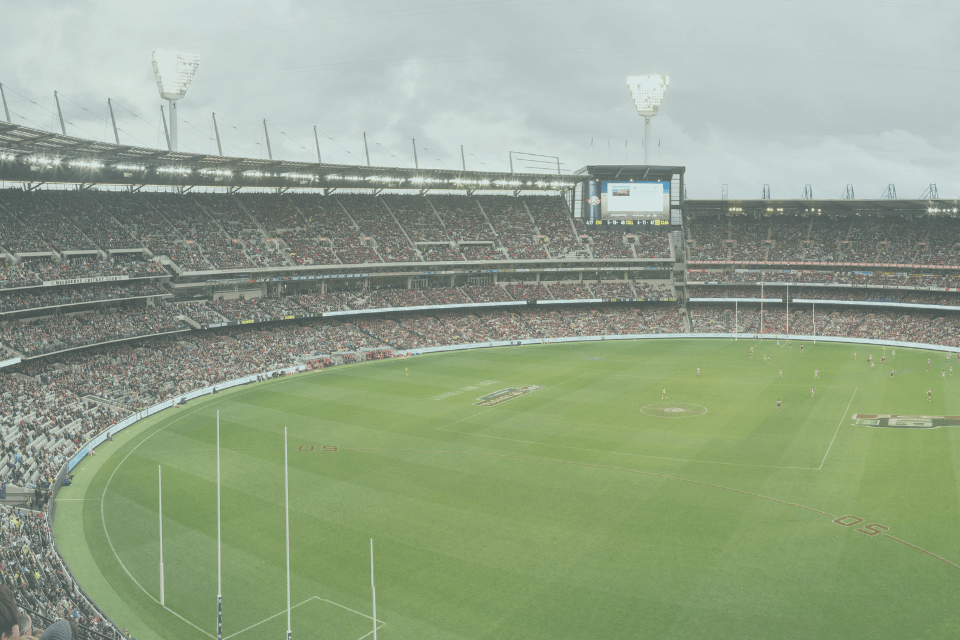
Written by Nick Mann
In the world of professional sports, the role of medical professionals is critical in ensuring athlete health and well-being. Club doctors are entrusted with this responsibility in the Australian Football League (AFL). Still, their dual loyalty to both the club and the players can lead to conflicts of interest that present significant ethical challenges.
The life-threatening injuries sustained by Christian Petracca during a game at the MCG on 10 June 2024, immediately followed by his being cleared to return to the field a moment later, is the latest in a long line of cases where the division of club loyalty and patient duty collide for coaches paid by professional sporting clubs.
The legal duty owed by an AFL club doctor to a patient is not lessened by the fact that the person is an elite athlete. In certain circumstances, clubs and the doctors they employ can be held liable for compensation claims related to the medical advice and treatment given to players.
The Dual Role of AFL Club Doctors
Ordinarily, a medical doctor has a single duty and focus – the health and well-being of their patient.
However, in many professional sporting codes, including the AFL, medical professionals are paid by the clubs whose players they care for.
AFL club doctors serve two primary stakeholders: the player and the club. On one hand, they are responsible for safeguarding the health and safety of the players, who rely on their medical expertise to prevent, diagnose, and treat injuries.
On the other hand, doctors are employed by the club, which has a vested interest in ensuring that key players are fit to perform, especially during crucial matches or finals.
A Delicate Balancing Act
This dual role creates a delicate balancing act. The club’s objectives – often centred around winning and maintaining high-performance standards – can sometimes be at odds with what is in the best interest of the player’s long-term health.
While the best and safest short-term and long-term outcome for a player may be resting or undergoing surgery, the club, fans, and media hope the player will return to playing as soon as possible.
AFL clubs will say that they would never direct a doctor to ignore their duty of care to the player. The point here is that they don’t need to issue a direction like that – the doctor knows what the club wants.
Players might say that they wanted to go back out there. Anyone who has worked in the medical profession will tell you that sometimes your duty of care to a patient extends to protecting them from themselves.
Fans and commentators argue that the players make their own choices – even putting aside the clarity with which a concussed player “makes their own choices” about their well-being, the pressure on players from fans, clubs and media to “harden up” and return to the field is enormous.
Doctors will say they will always put their duty of care to the patient first, no matter who is issuing their pay checks. How, then, to explain the string of high-profile cases in which the player’s welfare appears not to have been the primary consideration?
The stakes are too high, and the consequences too grave, to dismiss these factors lightly.
Examples of Conflict
One of the most common conflicts arises in the management of concussions. AFL players are frequently exposed to high-impact collisions, making them susceptible to head injuries. In recent years, the long-term effects of repeated concussions, including chronic traumatic encephalopathy (CTE), have come into sharp focus. Club doctors are under increasing scrutiny to ensure players follow proper concussion protocols, often requiring extended rest periods.
However, when a key player sustains a concussion during an important game, the temptation for the club to have the doctor clear them to return to play as soon as possible can be immense. In such situations, the doctor’s ethical obligation to the player’s health clearly conflicts with the club’s desire to field its best team.
Example One
In July 2024, star Port Adelaide Power player Aliir Aliir was concussed during a match following a head clash with a teammate. Contrary to strict AFL protocols, he was not given a SCAT5 concussion test before being allowed to return to the field. The decision resulted in Port Adelaide being fined $100,000 and severe scrutiny on its medical team.
Standard injury management, such as hamstring strains or ligament damage, also highlights the potential for conflict. Rushing a player back too soon may lead to reinjury, jeopardising the player’s career and long-term health, yet some clubs may still push for an early return due to the competitive stakes involved.
Example Two
In 2007, star Geelong player Matthew Egan found himself in this exact tough situation. Just days after suffering a severe foot fracture, he was cleared to return to training. Both Egan and the club were determined to have him back on the field for Geelong’s push towards the finals. His early return to training resulted in the injury breaking down, and he never played again. Legal action seeking compensation for medical negligence was eventually taken against Geelong’s club doctors.
Mitigating Conflict
To address conflicts of interest, AFL clubs can implement measures to ensure that commercial or competitive pressures do not influence medical decisions. These measures can include independent medical reviews, third-party assessments of severe injuries, and stricter adherence to recovery timelines.
However, considering the significant financial stakes involved in professional sports, it may be time for the AFL to have independent medical doctors present at every AFL game.
Where To From Here?
While the primary duty of care of the doctor lies with the player’s health, the pressure from clubs and fans to prioritise short-term performance can clearly interfere with medical decision-making.
The best course of action for the AFL would be to eliminate club doctors who may have conflicts of interest. Instead, they should be replaced by an independent medical team on-site to prioritise the players’ well-being above all else.
This is not merely an ethical consideration; it is a legal responsibility and a crucial aspect of player safety.
The time for change is now, and the stakes have never been higher.
1300 383 825 or email [email protected]





